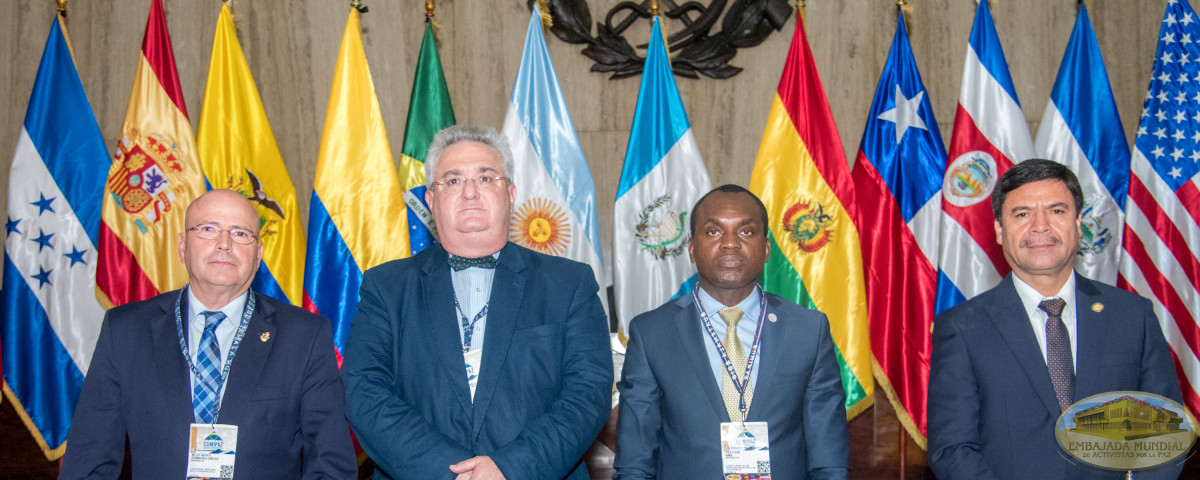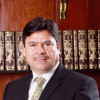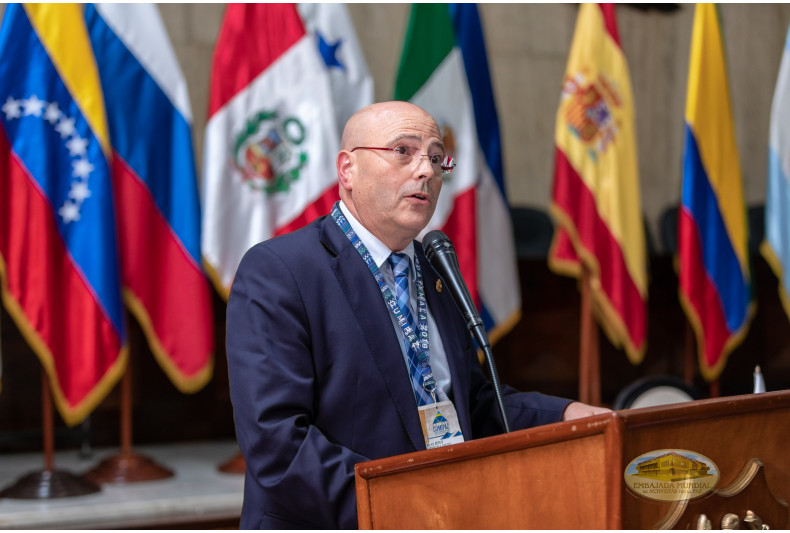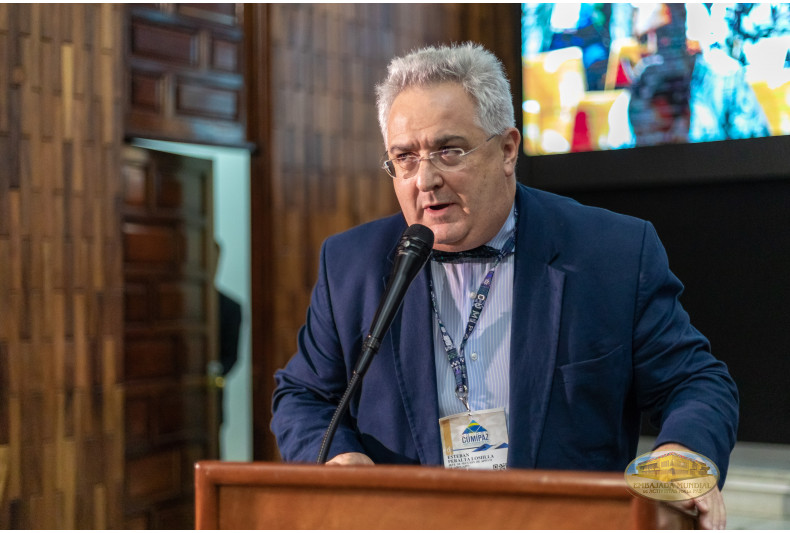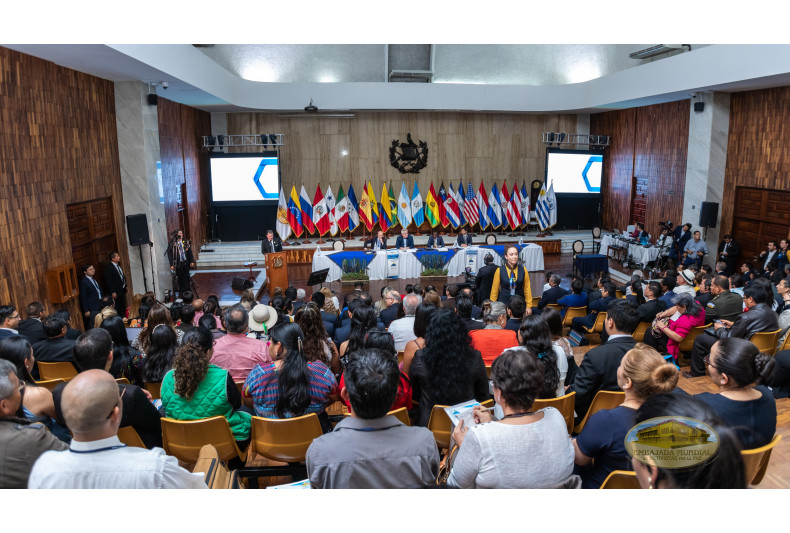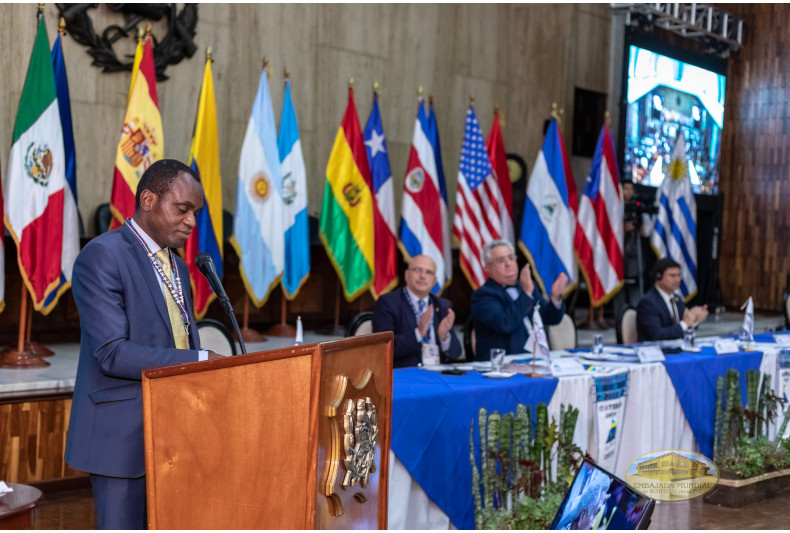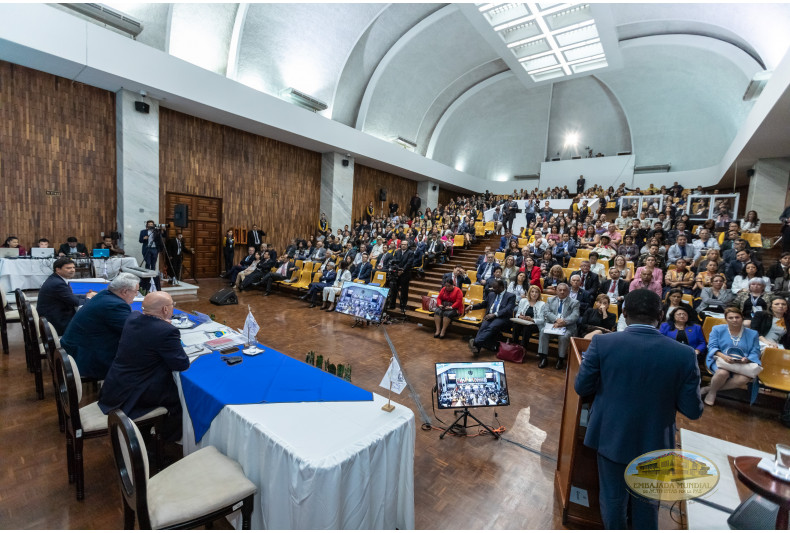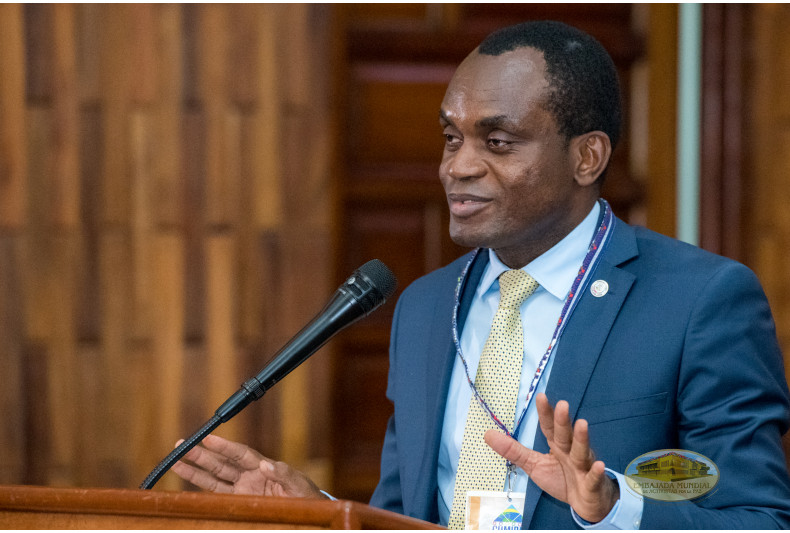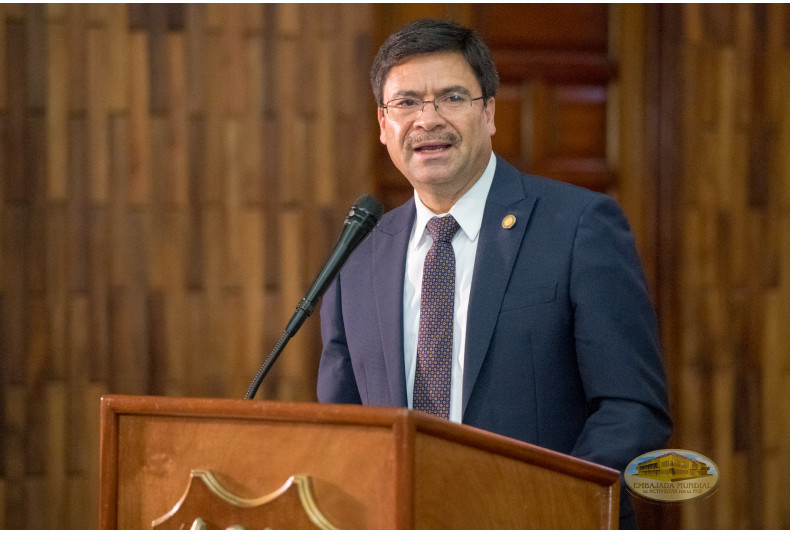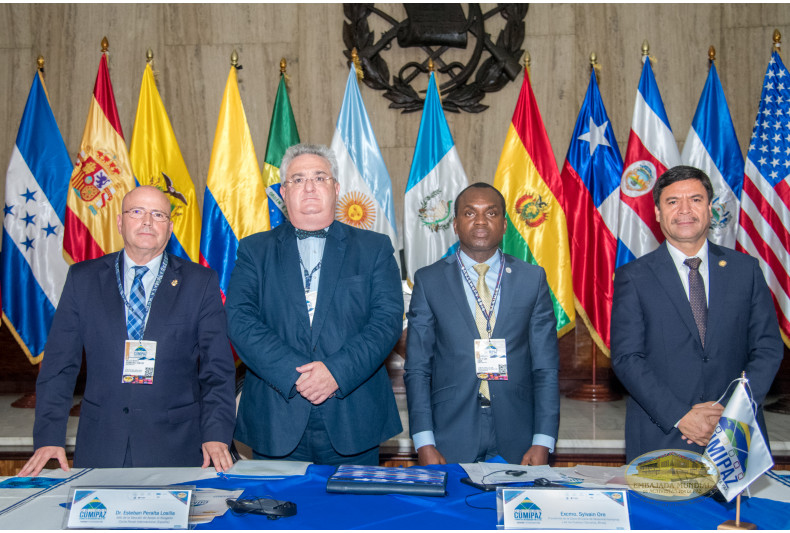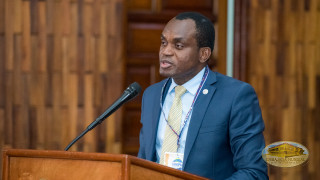High court judges discuss universal justice in CUMIPAZ 2018
See GalleryJudges of the high courts of Guatemala, Africa and Spain, developed the last segment of the Justice and Democracy Session of the 4th Peace Integration Summit (CUMIPAZ 2018 - Guatemala). The Palace of Justice of Guatemala City was the place chosen to carry out analyzes and proposals on universal justice, education for peace and the defense of human rights.
Contributing to the scope of the permanent security of the human family, respect for the dignity of the human being and the guarantee of fundamental freedoms, as well as the strengthening of the international justice system as well as national jurisdictions, were points in which the jurists coincided.
Access to the administration of justice
The President of the African Court of Human Rights, Sylvain Ore, spoke about the right of access to the administration of justice, and its contribution to the prevention of the violation of human rights. He stressed that the political and economic interests of nations have limited the protection of human rights, and that in many cases access to justice has been denied.
"The State has the obligation to take all necessary measures to prevent the violation of human rights, which implies giving the right of access to justice," he said.
Ore assured that effective access to justice can prevent violations of human rights and contribute to peace. However, he indicated that most of the time it is the same State that violates human rights and that this is the reason why international courts have been established.
The judge presented an analysis of the work of the African Court. Among the points, he pointed out that the institution has faced problems with the implementation of some of its sentences, but that in general the States have respected their decisions until now and the African Union has provided the Court with continuous support to defend the justice of the human rights as an African value and a political commitment.
"Access to the African Court is a challenge for the protection of human rights in the continent," he said.
Sovereignty and complementarity
On the other hand, Esteban Peralta, head of the Advocacy Support Section of the International Criminal Court (ICC), participated with the theme: Universal justice, sovereignty and complementarity.
Among the aspects mentioned, he highlighted the positive cooperation and complementarity to achieve effective justice. Peralta spoke about the withdrawal of the United States firm from the Rome Statute, and about what he considers would mean its integration back into the International Criminal Court, in this sense by way of invitation issued:
"The United States should take into account and trust in the game of complementarity, I believe that the United States should have sufficient guarantees to trust that Court."
In another aspect, Peralta encouraged the jurists present at the judicial session to train and promote education in the law of the International Criminal Court, indicating what it means to be trained in international law for the protection of human rights and be able to react against any violation of those rights.
He also spoke about the importance of the ICC having a greater presence in the Americas and adopting Spanish as a working language.
Justice to achieve peace
Ranulfo Rojas, vocal magistrate X of the Supreme Court of Justice, of Guatemala and former president of the Judicial Branch, spoke on Justice as the foundation to achieve peace.
.
"Justice is intimately linked to peace and when both are fully harmonious, the common good is obtained as a result," he said.
Rojas commented that the Guatemalan Court has been implementing various programs to establish some reference frameworks, and mainly, the reform of the criminal procedure code to respond to the cases of the communities and accessibility to justice.
"We know that people want the right of response, to make history known so that it is not repeated, and precisely that is what is incumbent on us as jurisdictional bodies and as the Supreme Court of Justice: strengthen jurisdictional bodies so that we keep in mind that if we have justice we can reach peace. If there is an answer, people are satisfied, and conflict is not generated," he said.
The magistrate pointed out that the judicial authorities from the jurisdictional bodies exercise a policy of prevention and stated that it is exercised based on the content of the judgments as long as they are public and are known by society in general. He referred to the Sepur Zarco case, a fact of sexual abuse towards women that occurred in a rural area of Guatemala, where the community demanded justice and that the case be made known in order for it to not be repeated.
Rojas finished:
"Try to be accessible, try to be sensitive to the requirement of the population and be able to provide all judicial bodies with all those tools that are effective (...) Laws we know we have all its edges, but as far as possible If we allow generating this type of tools we will achieve a better application of justice, we will achieve a balance, we will strengthen peace and social coexistence, and of course we will strengthen our democracies worldwide."
Education and culture
The president of the International Criminal Lawyers Association of Spain, Blas de Jesús Imbroda, presented his approach to justice and education as pillars in the promotion and defense of human rights.
He started with a reflection:
"Education is a basic and essential pillar for the defense and for the promotion, so that human rights are effective in the world, of course, but any education? all ... What education is necessary?"
Imbroda said that culture is not synonymous with defense, guarantee and promotion of human rights, he mentioned that a clear example was the Holocaust. "A cultured people, a people of educated and trained men could accept, could lead and guide that catastrophe of the Holocaust," he said.
The jurist emphasized:
"To educate, is very important, but to educate in principles and values, is essential. The principle of tolerance, principle of solidarity, respect for dignity, respect for life, respect for the freedom of people, equality, non-discrimination; all that is what you must teach."
Imbroda culminated by reading a writing of his authorship:
"From Auschwitz to the dream of the great Serbia, through the Rwandan extermination and many other brutal crimes, humanity continues to witness the systematization of barbarism by aberrant ideologies that are installed in power (...) International criminal justice complementing systems internal coercitives must confront such aberrant crimes definitively (...) current citizens and successive generations must have recorded in the pages of history and in their lives, that no one should ever admit the violation of human rights; that the offense against the principles inherent to the development of the person, of any person in any place of the world and of its dignity and freedom have answer in the universal right ... "
